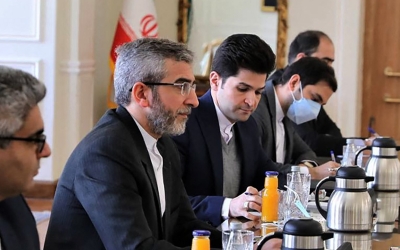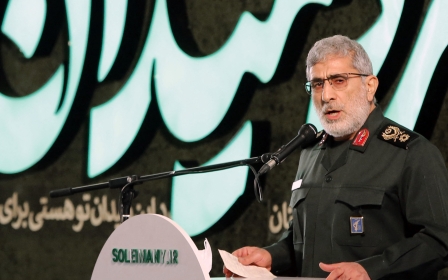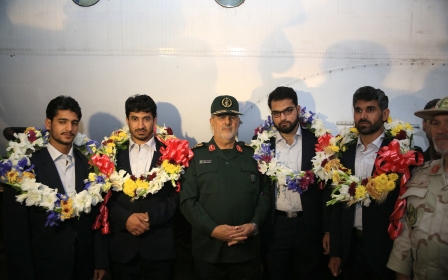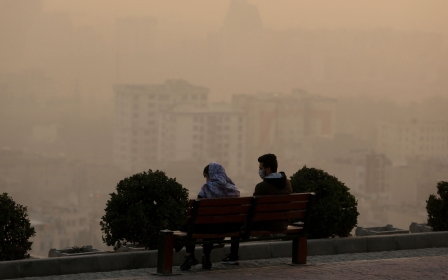Iran's Guards 'will continue to avenge Soleimani killing' despite US overtures
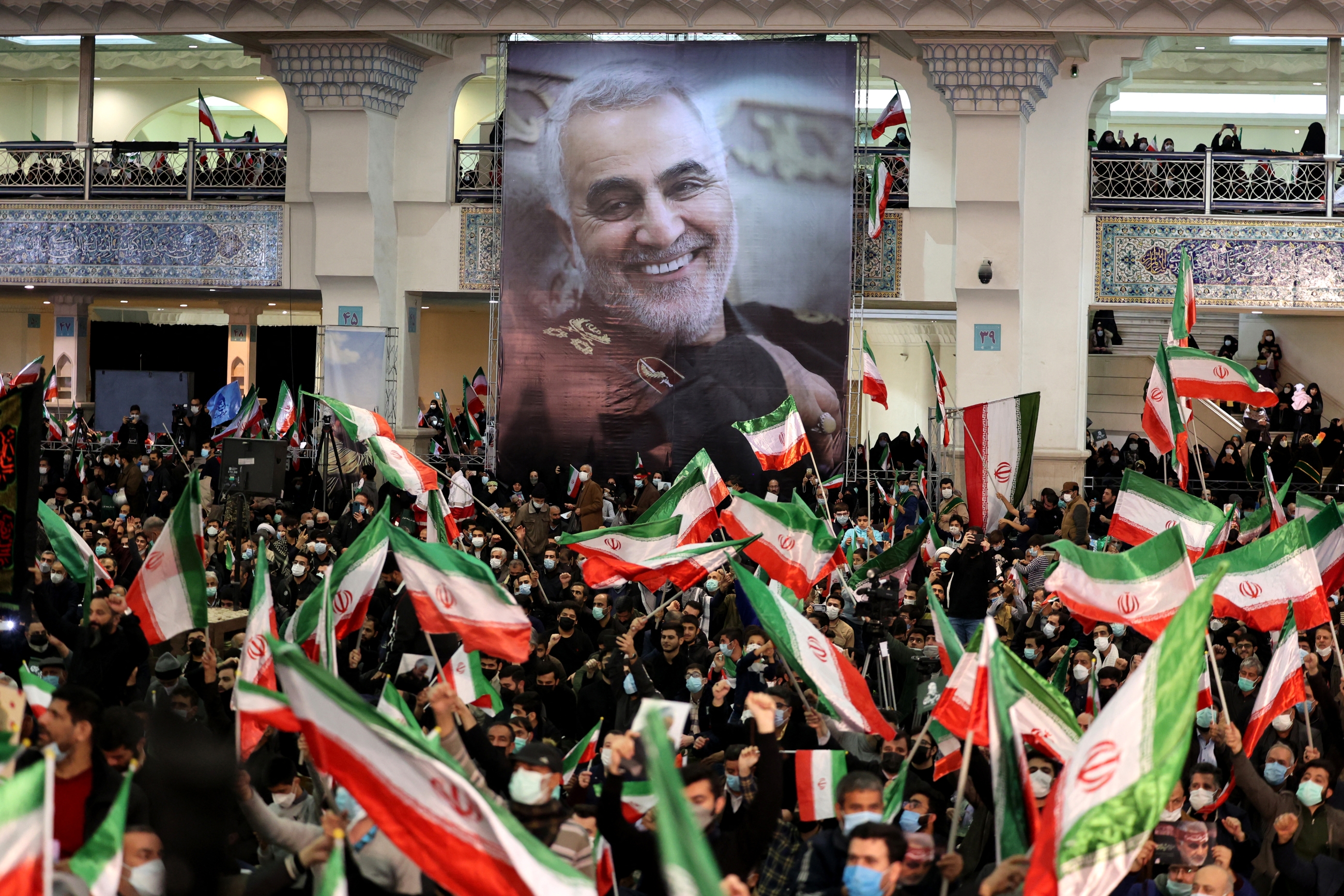
Iran's Islamic Revolutionary Guard Corps (IRGC) said on Thursday it would not stop its attempts to avenge the death of its top general as a condition to end sanctions - a key sticking point to reviving the Iran nuclear deal.
Iran has been engaged for a year in negotiations with France, Germany, Britain, Russia and China directly, and the United States indirectly, to revive the 2015 accord, known formally as the Joint Comprehensive Plan of Action (JCPOA).
The talks have stalled over Tehran's demand that Washington remove sanctions on the country's Islamic Revolutionary Guard Corps (IRGC), and its elite foreign operations arm, the Quds Force.
General Qassem Soleimani headed the Quds Force and oversaw its expansion throughout the region, taking a key role in rescuing the government of Syrian President Bashar al-Assad, an Iranian ally.
Soleimani was assassinated in a US drone strike in Iraq's capital, Baghdad, in January 2020.
New MEE newsletter: Jerusalem Dispatch
Sign up to get the latest insights and analysis on Israel-Palestine, alongside Turkey Unpacked and other MEE newsletters
"Enemies have asked us several times to give up avenging the blood of Qasem Soleimani, for the lifting of some sanctions. But this is a fantasy," navy commander Rear Admiral Alireza Tangsiri was quoted as saying by the IRGC's Sepah News website.
Former US president Donald Trump ordered Soleimani's assassination, saying he was planning an "imminent" attack on US personnel in Iraq.
Iran responded by firing missiles a few days later at Iraqi bases housing US soldiers, causing injuries.
The US has accused the IRGC of killing hundreds of American soldiers in Iraq, and the Quds Force of providing military support for proxy forces throughout the region, including pro-Iranian groups in Syria, Iraq Lebanon, and Yemen.
In 2018, two years before Soleimani's death, the US unilaterally withdrew from the nuclear deal and reimposed sanctions on Iran, claiming the deal had eased restrictions on the country's economy, while doing little to curtail Tehran's support for regional proxies and its ballistic missile development.
Iran maintained compliance with the accord for a few months before it began rolling back its commitments in 2019 and enriching uranium.
Concern that the US could lift sanctions on the IRGC and Quds Force, which were not part of the original deal, have caused alarm in Israel and the capitals of Washington's Arab allies.
Republican lawmakers, along with some Democrats, have also voiced their opposition to the move.
This week Iran said "technical issues" in the now-stalled negotiations to restore the accord have been resolved, but "political" issues persist ahead of concluding any deal.
"We have repeatedly stressed [to Washington] that Iran is not willing to abandon its red lines," Iranian Foreign Minister Amir-Abdollahian said on Thursday, without giving further details.
Middle East Eye delivers independent and unrivalled coverage and analysis of the Middle East, North Africa and beyond. To learn more about republishing this content and the associated fees, please fill out this form. More about MEE can be found here.


